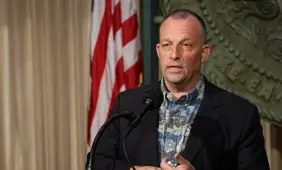Dutch Parliament Approves Ban on Online Gambling Ads
The Dutch House of Representatives has voted for major changes to online gambling laws. In a recent session, lawmakers voted to ban online gambling advertisements and high-risk games, such as slot machines.

The motions, proposed by Socialist Party MP Michiel van Nispen, were narrowly approved, and they represent a major change in the country's approach to online gambling.
The parliamentary session saw the deliberation of 114 motions, 14 of which were related to previous debates on gambling. Of these, ten were adopted, including measures requiring mandatory financial risk checks and identification requirements for the gambling sector.
Motion to Ban Advertising Passes with Small Majority
This decision represents a departure from previous attempts to introduce similar bans. A previous motion for a complete ban on gambling advertising failed to gain enough support in February. However, this time, the motion proposed by Van Nispen was passed with a slim majority of 77 votes.
The approved ban covers all forms of online advertising, going significantly further than the ban on untargeted advertising that was introduced in July 2023. The earlier ban prohibited mass advertising on platforms such as radio, television, outdoor locations, printed media, as well as sports sponsorships.
More Regulation News
Equally important is the approval of the motion to ban “online gambling with a demonstrably very high risk”. This includes online slot machines and other games in which players have little control over the outcome. While there are concerns about how the ban will impact the industry and state revenue, the motion was supported by a majority of 79 MPs.
However, the bans will not become law unless they are approved by the Minister for Legal Protection, Franc Weerwind. Weerwind is known for advocating responsible gambling and it is widely believed that he will approve the new laws.
Concerns over the Black Market
The implications of these bans extend beyond the regulated sector. Concerns include the potential growth of the unregulated black market, exemplified by Germany's increase in traffic to unlicensed operators following similar restrictions.
The Dutch regulated market has reached significant levels of channelization and as such, these bans may be a double-edged sword. While they are designed to protect players and reduce problem gambling, they may make maintaining market integrity and revenue generation harder.
RELATED TOPICS: Regulation
Most Read
Must Read
 Interviews
Interviews
Sweepstakes Casinos: Thriving in an Ever-Changing Industry – Interview with Attorney Stephen C. Piepgrass
Feb 17, 2025 Interviews
Interviews







Review this New Post
Leave a Comment
User Comments
Comments for Dutch Parliament Approves Ban on Online Gambling Ads